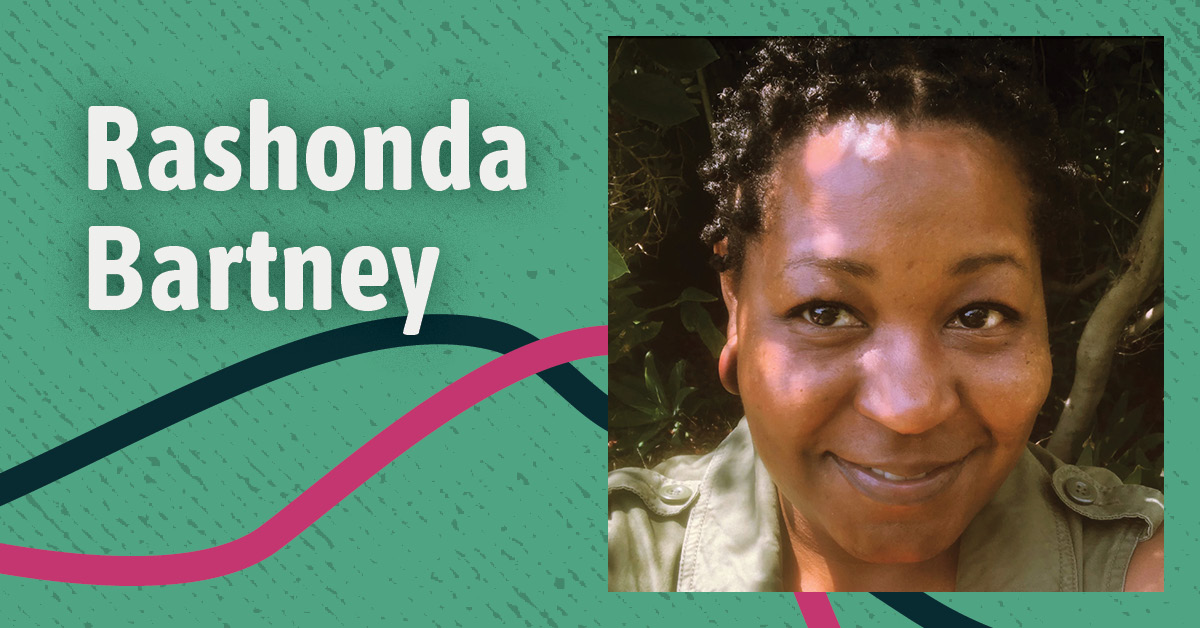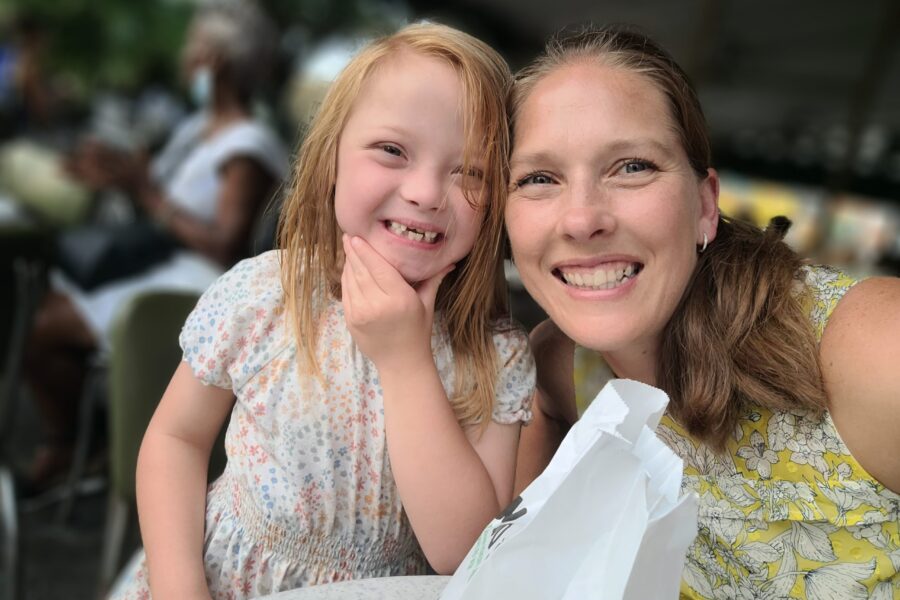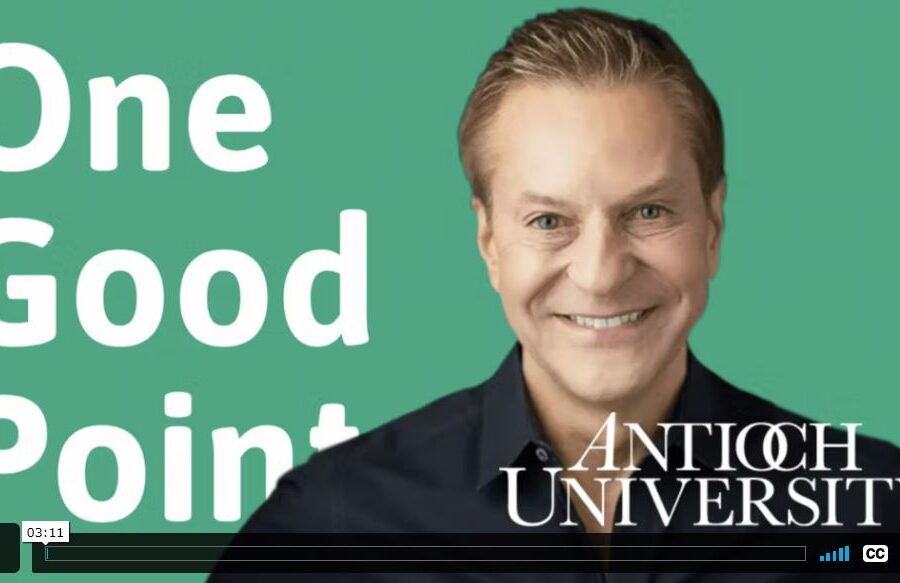We recently caught up with Rashonda Bartney, an alum of Antioch Los Angeles. After graduating with her MA in Clinical Psychology in 2003, Bartney has pursued a unique career, blending psychology and the healing arts. As an urban gardener and multidisciplinary artist, she teaches people how to grow food and express themselves with art and storytelling. Bartney is currently living and working between Tongva land around present-day Los Angeles and Chemehuevi land, which is in the Mojave desert. Read on to learn more about her work with environmentalism, art, and food justice.
I know that you came to study psychology at Antioch Los Angeles after spending time working in script development in Hollywood. Why did you choose to make this career change, and how did your degree in Clinical Psychology help with this career shift to health and healing?
I decided to make a career change because I needed my work as a writer and artist to feel more purposeful. Poetry, art, and gardening have always been an important part of my self expression and healing process. At nine years old my mother introduced me to the Harlem Renaissance, which sparked my interest and got me into creative writing. My interest in psychology actually started in high school during the 1992 LA Riots when I wrote and performed a one-woman award winning play. I was interested in exploring the human psyche to better understand myself and others. I also wanted to become better at writing character driven stories. I decided to get a degree in radio, TV, and film screenwriting, but my sixteen year old self knew I would eventually circle back around to psychology.
Hollywood was exciting, but after some years my enthusiasm faded. I took a caseworker position in a locked mental health facility and started graduate school. I wanted to immerse myself in the environment completely to get the full experience. Within the shift, I realized my passion and mission was to use multidisciplinary art as a healing medium. My degree has helped me realize that healing takes on different shapes and forms, especially when it comes to Black and Brown people. I have managed to integrate my passion and career working with marginalized communities.
What were the main concepts that you learned during your studies at Antioch that you carry forward in your work today? And do you have any favorite memories or stories from your time as an Antioch student?
Antioch taught me how important and instrumental it is for communities to be inclusive in order to progress and continue to be innovative. Antioch created a safe environment to not only learn, but also to be heard and seen. I had the honor of having Terrence Roberts—[who as a child was one of the] Little Rock Nine—as one of my psychology professors. I will never forget the day he shared his courageous and captivating story with the class. He is a brilliant, charismatic man. His life stories were lessons that often related to social justice issues.
Your work with Prospering Backyards involves healing the lead-contaminated land surrounding the defunct Exide Industries battery recycling plant in the City of Vernon, on the south side of Los Angeles. How did you come to do this work? And do you have any advice for individuals in other geographical locations who want to learn more about the soil they currently live with or on?
I was invited to be part of Prospering Backyards when I did an art installation called, “The Migration of African Indigenous Foods to Los Angeles” for a festival in South LA. The installation had caught some attention about the community work I’ve been doing from South LA to the Mojave desert. I’ve been creating soil and planting trees in the desert. Over time, I envision a desert oasis for rest, rejuvenation, and wellness. With the everyday hustle and bustle of life we have to retrain our body and mind to believe we deserve joy through relaxation. Rest is productive.
It’s been an astounding experience collaborating with local scientists from the Natural History Museum who are just as passionate about finding solutions and protecting the community from contaminated soil. Being part of a community-led initiative has been an amazing way to spread awareness through art and science.
If you are in Boyle Heights, East LA, and South LA you may qualify for a free soil test based on our project. You can get a regular soil test from a nursery in your area. You can go to the prosperingbackyards.com and get on the mailing list for updated information.
You are doing incredible and inspiring work that ranges from environmentalism and food justice advocacy to garden workshops, mental health care with healing arts, and more. Can you share how these unique and natural modalities have helped others, even yourself, heal from personal experiences with trauma?
I founded Urban Soul Farmer, which aims to educate and empower people on how to grow food in urban communities, where access to fruit and vegetables is limited and overpriced. In some cases, generational trauma can be linked to agriculture because it can be seen as a place of oppression and exploitation of Black and Brown people. Putting our hands in the soil is a way to heal and take our power back. Just like we have to nurture the soil in order to grow nutrient food, wellness and health is the foundation of strong communities.
You chose to get your degree at Antioch, a university that has a strong social justice mission. How did studying at Antioch University impact you, and has it influenced the community work you are doing now?
I chose to study at Antioch because of their alternative approach to teaching. I am an independent thinker, and I needed to be challenged beyond the standard teacher pedagogy. I felt safe in a setting with like-minded people of all ages, who are passionate about social justice and mental health. Antioch has influenced the way I listen, learn, and hold space for others. Attending Antioch has given me the confidence to navigate through life by being present, living my purpose and staying true to myself.




